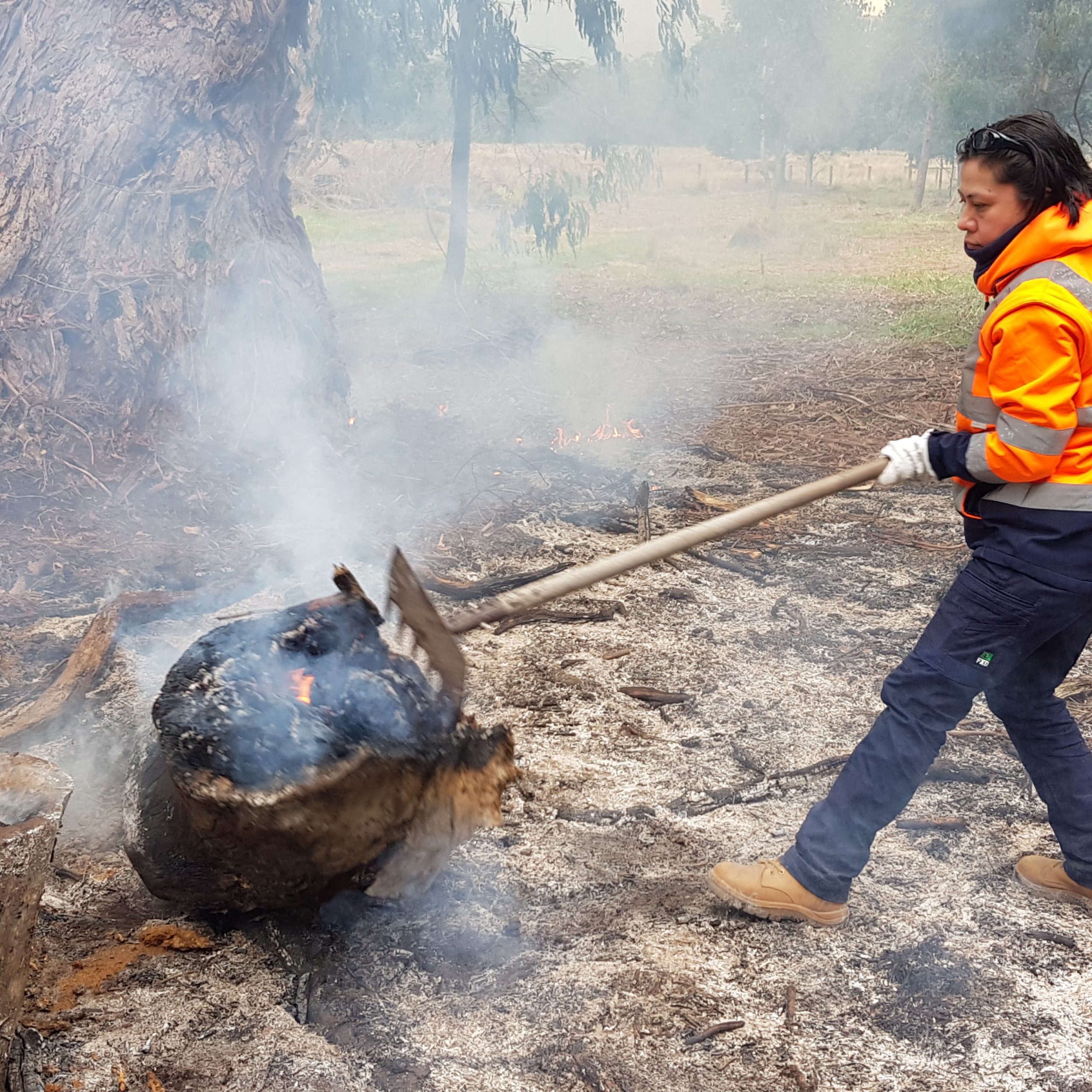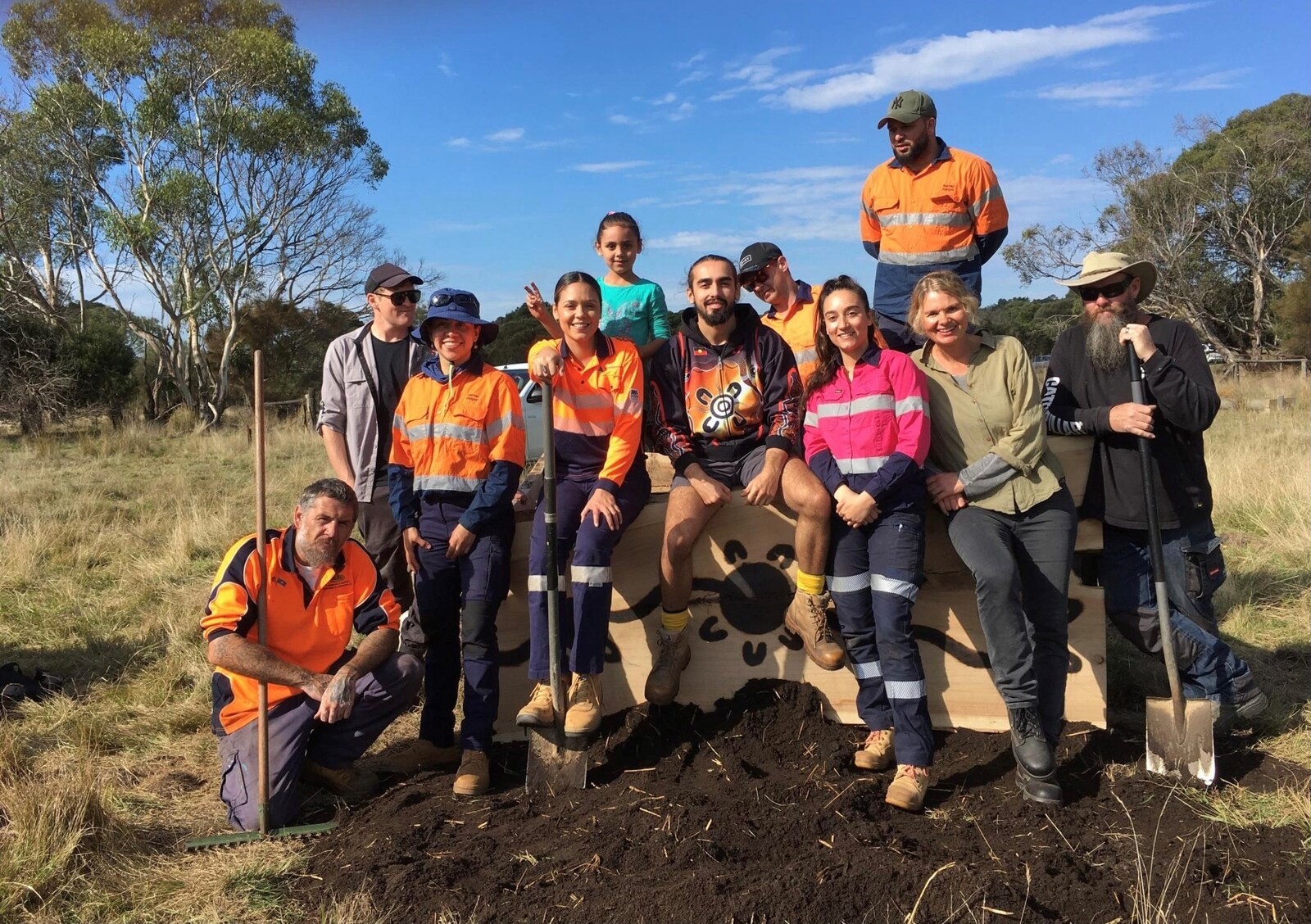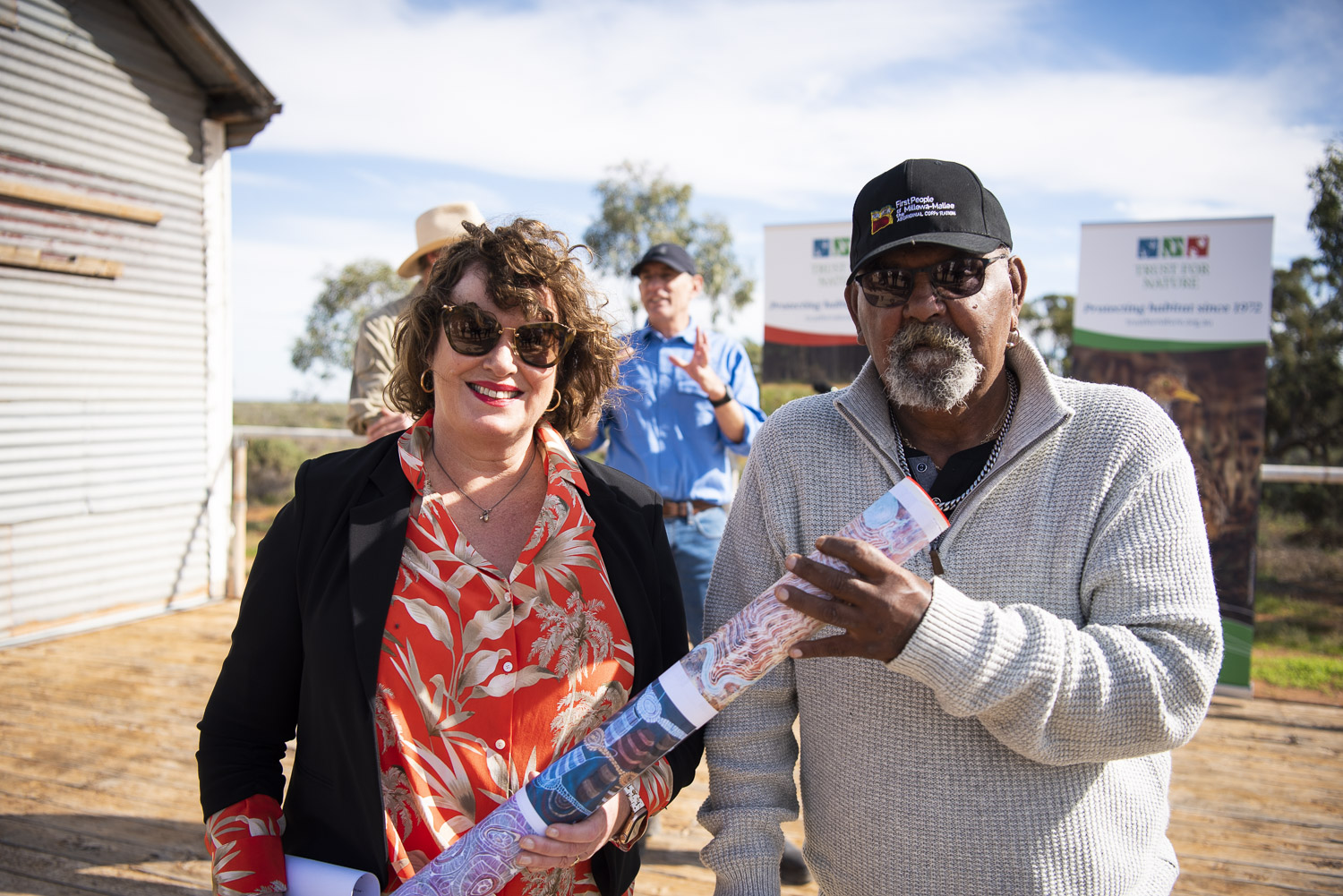As we continue to work with First Peoples, we recognise their invaluable knowledge of caring for Country.
For First Peoples, traditional knowledge includes ecological, cultural and spiritual knowledge and we seek to listen to and learn from this knowledge to help protect Country forever.
Trust for Nature recognises First Peoples past and continuing connection to Country and partners across every region of Victoria.

In 2022 Trust for Nature announced the transfer of Neds Corner Station back to its Traditional Owners, the Ngintait people.
The property, an important cultural landscape on Ngintait Country, was run as a grazing station from the 1840s until Trust for Nature purchased it with the help of donors and the Federal Government in 2002.
We’re also transferring an eight-hectare property on Millowl or Philip Island to Bunurong Traditional Owners, the first land handback to Bunurong People in over 180 years.
The land, which was donated to Trust for Nature in 2020, is part of the unique, richly biodiverse Rhyll Inlet—one of the most significant sites for migratory birds in Australia and recognised as a globally significant wetland under the Ramsar Convention on Wetlands.
An agreement between the Land Council and Trust for Nature includes 12 months access and management rights followed by a title transfer in 2023.
We’re working with Traditional Owners to provide conservation training for First Peoples.
The program, designed and delivered through a partnership between Bunurong Land Council Aboriginal Corporation, Wurundjeri Woi Wurrung Cultural Heritage Aboriginal Corporation, Wadawurrung Traditional Owners Aboriginal Corporation and Trust for Nature, provides culturally endorsed and TAFE–accredited training
Students learn on Country with Elders and other experts, and have gained experience protecting middens, building a bush food garden, and participating in a cultural burn at Coranderrk on Wurundjeri Country, the first cultural burn on the property in over 160 years.
The course enables an increased number of First Peoples to obtain and retain employment in the Indigenous land and water sector and build culturally appropriate career pathways while contributing to the strengthening of language and culture.

